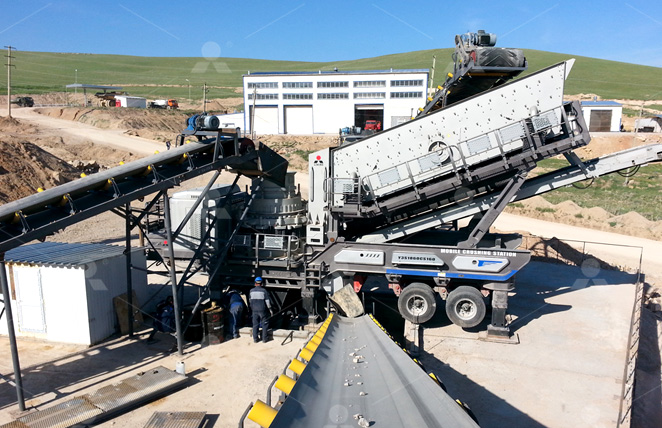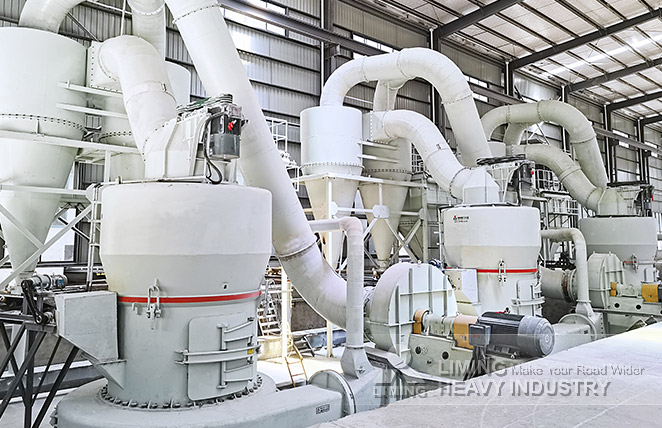

GROUP NEWS
How to choose limestone mills & crushers
Choosing the right limestone mills and crushers for your specific needs requires careful consideration of various factors. Here's a step-by-step guide to help you make an informed decision:
Define Your Requirements:
Start by clearly defining your project requirements, including the type and size of limestone you'll be processing, the required particle size, and your production capacity.
Understand the Limestone Characteristics:
Consider the hardness, abrasiveness, and moisture content of the limestone. These factors will influence the choice of equipment and the wear and tear it will endure.
 |  |
Select the Crushing Equipment:
Depending on your requirements, you may need different types of crushers:
Jaw Crusher: Suitable for primary crushing of large limestone rocks. It's a good choice when you need uniform-sized aggregates or large chunks for further processing.
Impact Crusher: Ideal for secondary or tertiary crushing, impact crushers produce more cubical-shaped particles and are well-suited for applications where shape is important.
Cone Crusher: Suitable for finer crushing, cone crushers are effective for producing smaller-sized aggregates or finely crushed limestone.
Hammer Mill: Ideal for coarse crushing, hammer mills are often used to reduce limestone to a desired size for subsequent grinding.
Consider Grinding Equipment:
If you need to further reduce the limestone particle size or create fine limestone powder, consider grinding equipment:
Ball Mill: Ideal for grinding limestone into a fine powder. Ball mills are suitable for high-capacity production and are often used in the cement and mining industries.
Raymond Mill and Vertical Roller Mill: These mills are suitable for finer grinding and are commonly used in industries like lime production and mineral processing.
Evaluate Energy Efficiency:
Energy consumption is a critical factor in equipment selection. Consider the energy efficiency of the chosen mills and crushers to minimize operating costs and environmental impact.
Maintenance and Operating Costs:
Factor in the maintenance requirements and operating costs associated with your equipment. A lower upfront cost may result in higher long-term expenses if maintenance is costly or frequent.
Consult with Experts:
Seek advice from equipment manufacturers, engineers, or industry experts. They can provide valuable insights and recommend equipment based on your specific needs and budget.
Consider Future Expansion:
Think about your future needs. Will your production capacity or product specifications change? Choosing equipment that can be easily scaled or adapted to future requirements can save you money in the long run.
Safety and Environmental Considerations:
Ensure that the equipment you choose meets safety standards and environmental regulations relevant to your industry.
Testing and Trials:
Whenever possible, conduct tests or trials to assess the performance of the selected equipment with your specific limestone material.
Budget: Finally, consider your budget constraints. While it's important to invest in quality equipment, ensure that your choice aligns with your financial resources.
In conclusion, selecting the right limestone mills and crushers is a critical decision that impacts the efficiency, productivity, and cost-effectiveness of your operations. By carefully evaluating your requirements, consulting with experts, and considering factors such as maintenance and energy efficiency, you can make an informed choice that optimizes your limestone processing operations.
CONTACT US
Related News...
Jaw Crusher Working Principle Explained: Structure, Performance, and Applications
11/2/2026
Copper Ore Crushing Solutions for Efficient Mineral Processing
6/2/2026
Mobile Crushing Plant Solutions for Flexible and Efficient Aggregate Production
30/1/2026
Basalt Crushing Solutions for High-Strength Aggregate Production
23/1/2026
Granite Crushing Solutions for High-Quality Aggregate Production
16/1/2026
How to Improve Aggregate Quality While Reducing Crushing Plant Operating Costs
9/1/2026
Jaw Crusher vs Cone Crusher: How to Choose the Right Crusher for Your Mining Project
26/12/2025
Limestone Crushing Solutions for High-Capacity Aggregate Production
15/12/2025
